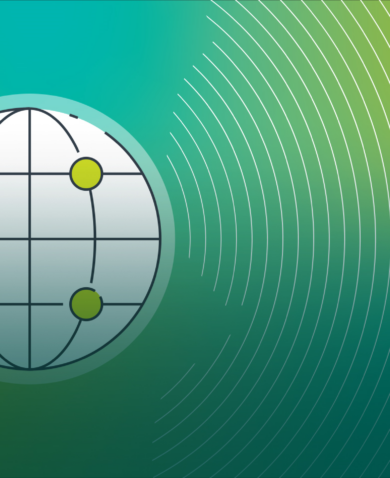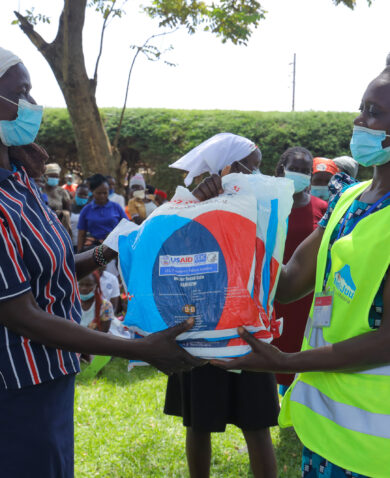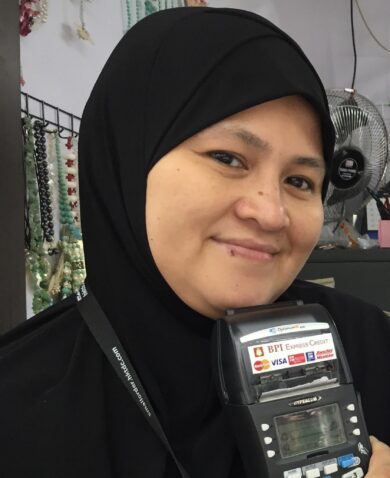
Chemonics News
News: Chemonics and Partners Host Third Annual Global Digital Development Forum
April 13, 2022 | 5 Minute ReadThis free virtual event accommodates worldwide participation from technology enthusiasts and development professionals. USAID Administrator Samantha Power will deliver the keynote address.
On May 4-5, 2022, an anticipated 3,000 development professionals from around the world will gather online for the third annual Global Digital Development Forum. This free-for-participants event will be a platform to share and learn about using digital technology to increase development impact.
 Chemonics has partnered with USAID, Deloitte, TechChange, DAI, Palladium, CARE, and the Digital Impact Alliance to organize and host this year’s two-day event. Offering sessions on May 4 from 4 a.m. to 8 p.m. GMT and into the next day from 12:30 p.m. to 4:30 p.m. GMT, the organizers have designed the forum to encourage broad engagement. Whether they are joining from Asia, Africa, Europe, or the Americas, participants will have access to keynotes, lightning talks, panel discussions, interactive workshops, and technology demonstrations.
Chemonics has partnered with USAID, Deloitte, TechChange, DAI, Palladium, CARE, and the Digital Impact Alliance to organize and host this year’s two-day event. Offering sessions on May 4 from 4 a.m. to 8 p.m. GMT and into the next day from 12:30 p.m. to 4:30 p.m. GMT, the organizers have designed the forum to encourage broad engagement. Whether they are joining from Asia, Africa, Europe, or the Americas, participants will have access to keynotes, lightning talks, panel discussions, interactive workshops, and technology demonstrations.
Sessions will explore three crosscutting themes: locally led development, climate change, and emerging technologies. Governments, international aid agencies, and private sector representatives will tackle questions like What is locally created technology? How will Web3 impact international development implementation? How can technology help people mitigate or adapt to the effects of climate change? Those interested in the emerging technologies can discuss whether innovations like Internet-of-Things and cryptocurrency are fads or are here to stay.
Experts and specialists from Chemonics will contribute to conversations about digital health systems, use of satellite technology for predicting conflict, and technology as a tool for preventing gender-based violence (GBV).
Manisha Aryal, global practice lead for Chemonics digital development, will host multiple sessions. The practice will also organize digital practitioners networking sessions in Arabic, French, and Spanish. “We have an incredible lineup of sessions this year, from local tech ecosystems to climatetech,” says Manisha. “The GDDF is the place to be on May 4 and 5!”
Chemonics is managing several sessions:
Leveraging Digital Solutions to Improve Prevention and Response to Gender-Based Violence (Breakout Session, Spanish)
May 4 at 5 p.m. GMT
Technology plays a key role in preventing GBV and improving survivors’ access to justice. Panelists from Colombia, El Salvador, and Guatemala, including Chemonics’ Kelly Brooks and Cecilia Barraza, will discuss their experiences using technology to hold perpetrators of GBV accountable, with a deep dive into trust and responsiveness of government service providers, security considerations, functionality, and challenges with internet connectivity. Participants will better understand the challenges of developing digital solutions that target justice-related services. Topics will include digital tools that improve survivors’ ability to report GBV cases, as well as tools that strengthen their access pathways to receive timely emergency medical and ongoing mental health services.
How Technology Can Mitigate the Effects of Conflict and Climate Change (Breakout Session)
May 4 at 6:30 p.m. GMT
Technology can serve as a powerful conflict mitigation tool within environments that are vulnerable to climate change. Chemonics’ Dr. Ruth Citrin will moderate discussion among experts in policy, technology, and stabilization to examine complex climate-conflict relationship in Liberia and Mozambique. The panel will discuss how satellite technology and locally sourced reporting tools are being used to address both challenges. It also will explore how geospatial technology can strengthen research and localization efforts incorporating research findings into implementation in a way that is locally led, sustainable, and ethical.
Supporting Country-Led Digital Health Systems: Lessons in Tool Integration (Breakout Session)
May 4 at 2 p.m. GMT
Digital health systems help governments set measurable goals, improve service delivery, increase data-driven decision-making, and implement evidence-based policies. By supporting country-led digital health systems, donor-funded programs can strengthen system use capacity and performance, enhance local accountability mechanisms, and contribute to sustainable approaches for improving health outcomes. Moderated by Chemonics’ Dr. Baz Semo, panelists will explore lessons learned from integrating digital tools into existing logistics, commodity, and health information management systems to strengthen country ownership and resilience.
Farm to Fork with Agronavti App in Georgia (Breakout Session) May 4 at 11 a.m. GMT
Farmers in Georgia were dealing with opaque pricing information when it came to agricultural products. Georgian Farmer’s Association (GFA) wanted to change this and with support from the Chemonics-implemented USAID/Zrda project, introduced a digital solution – the Agronavti platform – to help farmers determine optimal times to sell their produce. The app connects farmers directly to end-buyers, local hotels, and restaurants, allowing producers to sell over 200 products. The platform has facilitated over $4.3 million in sales. GFA continues to update and add to the platform, and has added farmer-requested functionalities such as information about new agriculture bills, land auction schedules, weather forecasts, and agricultural news. This session will discuss why the farmers’ association introduced a digital solution to the traditional farming sector, how it is responding to emerging agtech needs of its members, and how the platform is enabling accountability in the agricultural marketplace.
Leveraging Collective Intelligence to Think and Work Politically (Workshop)
May 4 at 9 a.m. GMT
Internet and phone access have proliferated around the world, including in some of the most impoverished communities, providing an unprecedented opportunity to engage with a broader set of communities. That engagement can take many shapes, from virtual political economy analysis to social network analysis, regular SMS surveys, and artificial intelligence-enabled text mining. This workshop will explore employing digital tools that map collective intelligence — from Ushahidi for election monitoring to SenseMaker for assessing community behaviors — to make data-driven programming decisions that reflect an ever-changing environment. Panelists, including Chemonics’ Maria Ines Velasco Sodi, will discuss how these tools can improve Thinking and Working Politically, along with their potential to durably transform governance programming.
Cheap, Fast, AND Good — Positive Collaboration with Tech Vendors (Workshop)
May 5 at 3 p.m. GMT
As digital tools become integral to how projects deliver on outcomes, staff will need to procure an increasing number of vendor services for app and platform development and other software-as-service products. This brings several challenges, such as differing contracting mechanisms and monitoring approaches. Without open discussion and clear scopes of work, relationships between tech vendors and clients can become confusing at best and conflictual at worst. This workshop — facilitated by Chemonics’ Chris Gegenheimer and colleagues from DevResults and the Digital Impact Alliance — will explore communication and collaboration, provide tools to avoid common pitfalls when developing tech-related scopes of work, and address application of the Principles for Digital Development to effectively navigate vendor-client relationships.
Addressing Data Governance for Locally-Led Health Supply Chains (Session)
May 5 at 11:30 GMT
Data governance presents a host of complex challenges as well as exciting opportunities for locally led health supply chains. In this session, four health supply chain practitioners will explore myriad data stakeholders in local supply chains, as well as challenges of data ownership and data privacy. Moderated by Simon Cole, panelists will explore lessons learned around building effective collaboration among data stakeholders.
Three Chemonics-implemented projects will demo new digital solutions. Nancy Maroun will showcase a digital database of recyclables waste collectors that Chemonics developed for the USAID/Community Support Program in Lebanon. Nora Kokaj will review the opportunities, challenges, and lessons learned on the USAID Kosovo Economic Governance Activity as it employs digital solutions to improve public financial management systems and stimulate government accountability. Philippe LaMarche will highlight opportunities of court automation in Haiti by presenting the case management information system designed under the recent USAID Haiti Justice Sector Strengthening Program.
Register for the GDDF here. Stay updated on all the action by following @Chemonics and #GDDF2022 on social media:
GDDF Social Media Events









































